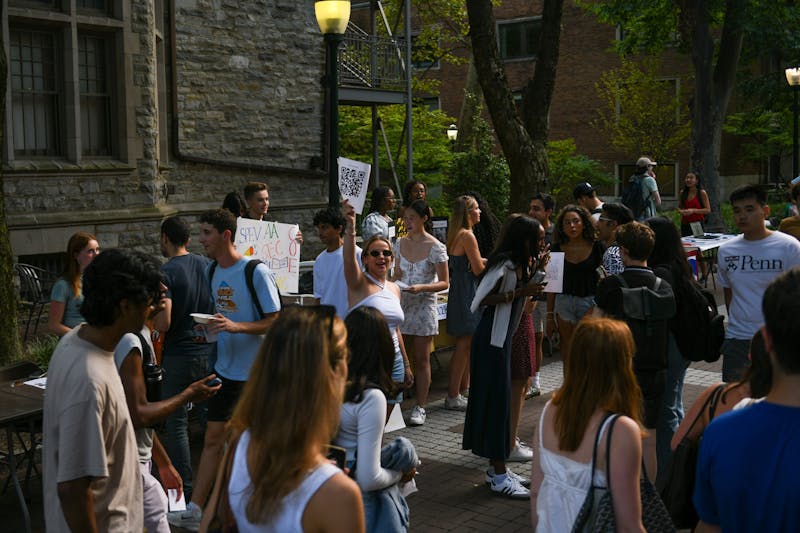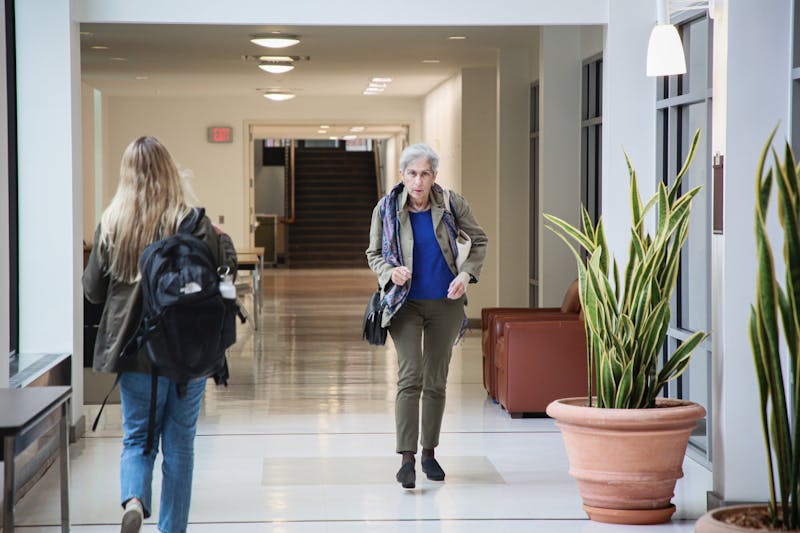Back in 1964, a man named Edward Anthony's life changed forever.
He was in jail at the time for dealing marijuana; only a 23-month sentence.
While behind bars, Anthony enrolled in a clinical trial for a Penn dermatologist named Albert Kligman, a giant in his field who made millions developing the popular acne drug Retin-A. Anthony and fellow inmates enrolled in the trial to make a few extra bucks, to help ward off the sexual predators and drug dealers that roamed the halls at Holmesburg.
Being in that study was the worst decision he ever made, Anthony told me this week. Penn doctors put him through tests that burned him and caused him unbearable pain. Anthony and most of his fellow inmates were functionally illiterate, unable to understand the informed-consent form that doctors hastily had him sign.
Scars still cover Anthony's skin in neat lines, in the shape of square-patch tests administered decades ago.
"My hands, my feet, my joints are all affected from tests 40 years ago," he said. Kligman "knew he hurt a lot of inmates; he don't care, though."
Yesterday's DP has a long feature on Anthony - his life, his health, and how both were irrevocably altered by the unethical actions of Penn doctors. Anthony is only one of hundreds of inmates who say they were physically harmed in Kligman's studies at Holmesburg prison.
Yet Penn refuses to take a clear stance on its shameful past.
Kligman certainly won't apologize. Now in his nineties, he is still an professor emeritus at Penn's medical school, the recipient of numerous awards and honors. His portrait still hangs in the dermatology department, smiling benevolently over the waiting room.
Penn won't apologize either. About 300 former Holmesburg inmates who say they were harmed by Penn research sued the University in 2001, but their suit was dismissed because the claim was too old.
That doesn't mean that Penn can ignore its ethical mistakes.
Many doctors, ethicists and prisoners' rights advocates - including one prominent Harvard dermatologist who trained under Kligman - say Penn has an obligation to right its past wrongs.
"These men were mistreated," said Arthur Caplan, director of Penn's Center for Bioethics. "They do merit an apology."
Medical research on prisoners was banned in 1974. It was partly in reaction to a host of stories like Anthony's and the infamous Tuskeegee syphilis study, in which hundreds of illiterate sharecroppers were denied medical treatment and fed misinformation between the 1930s and 1970s.
There is a long history in this country - much of which took place right here at Penn - of researchers conducting dangerous and unethical studies on prisoners.
Banning that kind of research is common sense. Prisoners are a vulnerable population, often in desperate circumstances that force them to make desperate decisions. An element of coercion is almost inevitable.
Yet in 2006, for some reason, the Institute of Medicine - an organization that makes major-policy recommendations to the federal government - suggested that medical studies in American prisons be allowed.
There hasn't been any official word since then, but the fact that the medical community is reconsidering its ban is alarming.
This is the perfect opportunity for Penn to rectify its unethical past.
As of now, the University's Institutional Review Board refuses to comment on the proposed federal changes. The IRB is an office that monitors all University research on human subjects.
Yvonne Higgins, the director of Human Research Protections, says that if research on prisoners becomes legal, it would take years to have any implications for Penn - and her office has more immediate priorities. To Higgins' credit, the IRB now has far more stringent rules that govern medical research on human subjects. Research is reviewed by committee after committee, both internal and external. Higgins says she is proud of how hard her office works to make sure that patients' rights come first.
But that doesn't mean Penn has no obligation to those it has wronged in the past.
The University should take a public stand against medical research in jails and prevent its researchers from conducting it.
It's good science, and it's good ethics. And it's what we owe men like Edward Anthony.
Mara Gordon is a College senior from Washington D.C. Her e-mail is gordon@dailypennsylvanian.com. Flash Gordon usually appears on Thursdays.
The Daily Pennsylvanian is an independent, student-run newspaper. Please consider making a donation to support the coverage that shapes the University. Your generosity ensures a future of strong journalism at Penn.
DonatePlease note All comments are eligible for publication in The Daily Pennsylvanian.







